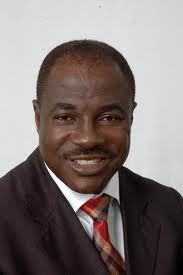The Chief Executive Officer (CEO) of Tropical Cable and Conductors Limited, Tony Oteng-Gyasi has bemoaned the minimal impact of research institutions on industry.
The former president of the Association of Ghana Industries (AGI) appealed to research and tertiary institutions to find workable solutions to problems confronting industry.
Speaking at a forum recently organised by Berock Ventures Limited, a construction company in Accra to discuss the issue and come out with measures to bridge the gap, Mr Gyasi said research institutions should commercialise their work.
There have been several complaints that a significant number of graduates churned out by schools in the country are not suitable for the workplace while good research work by tertiary institutions and research bodies are left to gather dust on the shelves.
These challenges are considered symptoms of a huge gap between industry and the academia, a situation many believe has adversely affected the development of the country.
In a remark, chairman of Berock Ventures, Rockson Dogbegah, said a large number of graduates from the country’s tertiary institutions and even technical, as well as vocational schools, were simply unemployable and called for urgent measures to address the challenge.
Prof. Kwesi Yankah, president of Central University College, for his part, said even though changes were taking place within academia, they were not rapid.
He therefore urged tertiary institutions to recruit people with rich work experience so as to bridge the gap.
Prof Yankah mentioned that Central University College continuously introduced courses based on the demands of industry but added that certain bureaucratic bottlenecks within the education system sometimes thwarted the speed with which new and relevant courses were introduced.
Pro Vice Chancellor of the Kwame Nkrumah University of Science and Technology, Prof. Samuel Nii, in a remark, said it was imperative for government, industry and academia to work together to address the challenge.
He highlighted the relevance of internship in preparing students for the world of work but said the dwindling fortunes and collapse of industry with increasing number of students’ intake made practical attachment almost impossible.
Prof. Samuel Sackey, who represented the Vice Chancellor of the University of Ghana, spoke of new initiatives to prepare students for the job market.
He said a new PhD programme introduced by the university would compel students to undertake one-year attachment.
Also, he mentioned that a number of practical-oriented courses were being introduced.
A former lecturer at KNUST, Dr. Jerome Antonio, who noted that industry needed to have a say in the curricula of schools, added that tertiary institutions needed advisory boards to ensure that their work remained relevant to industry and the country.
Renowned civil engineer and traditional ruler, Torgbui Kporku III, Dufia of Alakple, who chaired the meeting, said there was an urgent need to address the challenges of industry so that companies could blossom and provide internship and employment opportunities to the youth.
Business News of Wednesday, 13 November 2013
Source: Daily Guide
‘Research bodies must impact industry’













